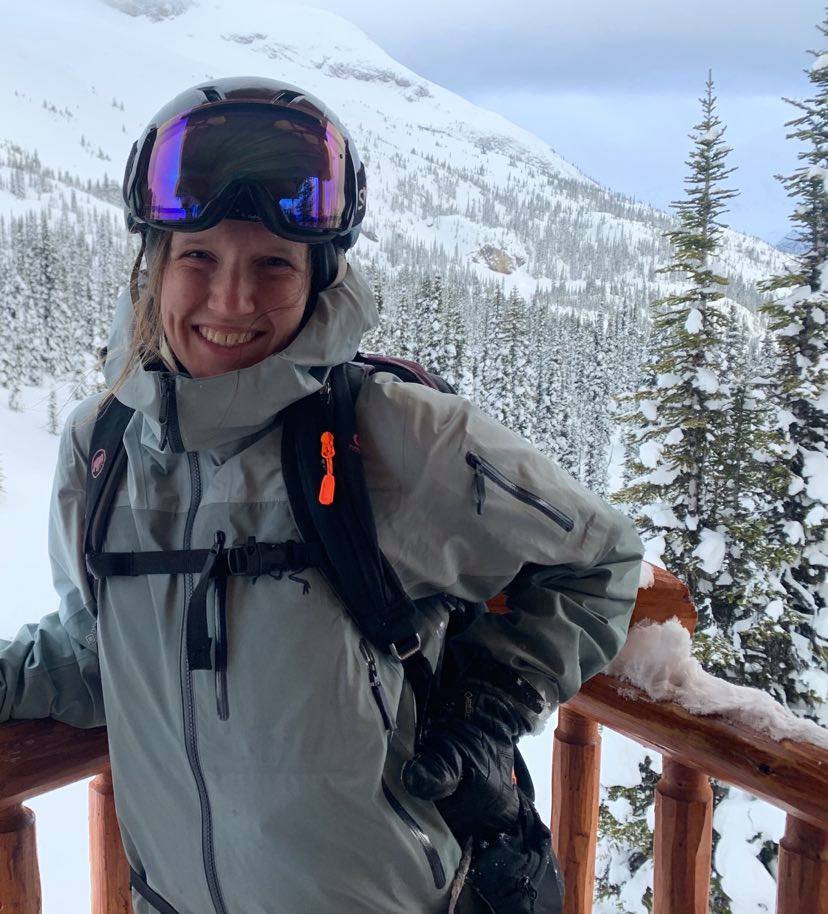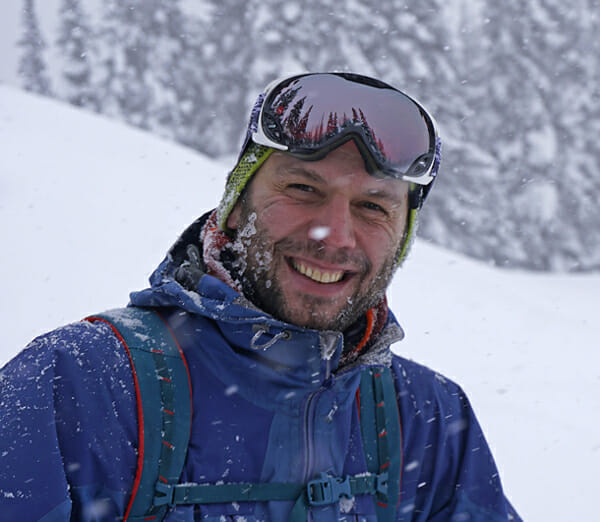|
Research Team Profiles
It is important to us to create a research environment where research participants feel save and comfortable to share their opinions and perspectives with us without being judged. Part of this is to be completely transparent about who we are, where we have come from, and what our motivations are. This page provides some personal background information on the research team members involved in this study.

|
Rosie Langford (she/her)
Master's Student and Research Lead
Growing up in a family who values the outdoors, I am fortunate to have had the opportunity to begin my adventures in the winter backcountry at a young age where I found joy, freedom, and a strong sense of curiosity. This eventually motivated me to learn more about the winter backcountry and about how to be there safely. Now, I have the opportunity to both learn from and alongside others and also share what I have learned in my role as an avalanche educator, as a Director with Mountain Mentors, and in my master’s research. I first joined the SFU Avalanche Research program as an undergraduate student in 2016 and am inspired by the opportunity to work at the crossroads of academia, backcountry recreation, and avalanche safety.
I am humbled by and grateful for experiences I have had, the places I have visited, and the people I have had the pleasure of being out with. I acknowledge the intersecting privileges I hold that have led to my learning and development in the both the academic and backcountry settings and am committed to working to ensure that others can access and enjoy safe experiences in the outdoors.
My role in this study is to conduct the one-on-one interviews and analyze the experiences and perspectives shared in the interviews to elicit meaning and gain understandings. In this sense, my role is to ask questions, maintain curiosity, to listen intently, and to learn from the study participants.
|

|
Pascal Haegeli (he/him)
Associate Professor and Supervisor
I found my love for the mountains, snow and skiing in my childhood in Switzerland where I was born and raised, but it was only during my early years at university that I started to ski in the backcountry. I had the fortune to have a few knowledgeable friends who introduced me to the craft of reading the avalanche bulletin, setting a track, and using a transceiver.
In 1998, I moved to British Columbia to pursue a PhD at the University of British Columbia focusing on avalanches, which allowed me to combine my interest in science with my passion for the winter backcountry. I simply wanted to learn more about how avalanches work and how to manage the associated risks. Over the last 23 years, I was fortunate to have worked with many amazing people who shared their avalanche experiences, knowledge, and wisdom, and I was lucky to find a way to contribute to the Canadian avalanche community with my academic skills. Since 2015, I have the pleasure to work with a wonderful team of students to explore interesting avalanche safety related research topics at Simon Fraser University. And even though I am not spending that much time in the backcountry anymore, my motivation to learn more about avalanches and help others to enjoy the backcountry safely remains the same.
My role in this project is to assist Rosemary and guide her research approach in the background to ensure we make the most out of her enthusiasm and research talent.
|
Land Acknowledgment
We currently live, work, and recreate on the unceded territories of the xʷməθkʷəy̓əm (Musqueam), Sḵwx̱wú7mesh (Squamish), səlil̓ilw̓ətaʔɬ (Tsleil-Waututh), kʷikʷəƛ̓əm (Kwikwetlem), Líl̓wat (Lil'wat), and St̓át̓imc Tmicw (St’at’imc) Peoples. We understand this acknowledgement to be a starting place for further reflection on historical and ongoing settler colonialism and for ongoing critical self-location. In addition to this statement, we hold ourselves accountable to meaningful learning and action at home, in the office, and on the skin track.
For more information on our perspective on justice, equity, diversity and inclusion, visit our JEDI positionality statement at https://avalancheresearch.ca/jedi/.
|

